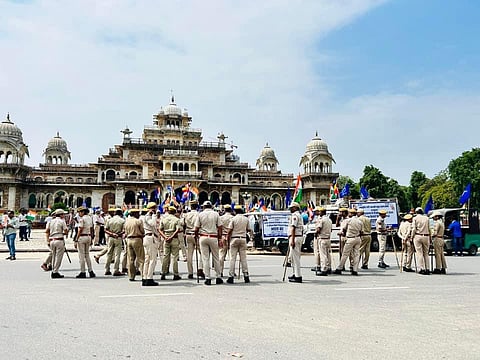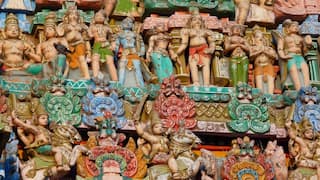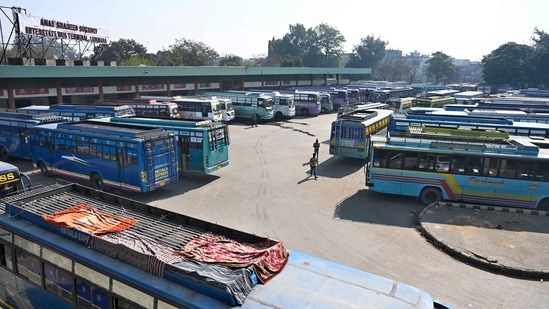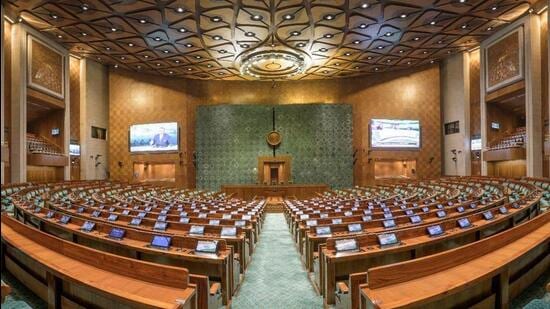22.08.24.UNTOUCHABLES NEWS.CHENNAI.SIVAJI.
Death of Dalit youth lodged in Firozabad jail, family alleges murder

Firozabad: A Dalit youth who was caught two days ago on charges of bike theft died in the district jail on Friday.
On Thursday night, the youth was admitted to the district hospital after his health deteriorated. Akash died during treatment there. After the death of the youth, the family created a ruckus with the workers of Bhim Army. Akash’s family said that the death was not natural and the matter should be investigated.
Courtesy: Hindi News
Bharat Bandh: Dalit and Adivasi Protest Impacts Odisha’s Transport

A Bharat Bandh called by Dalit and Adivasi groups to protest the Supreme Court’s recent verdict on SC subclassification impacted transport throughout Odisha. While government operations continued normally, widespread disruption to trains and buses was reported, leading to major blockades and demonstrations across the state.
ABharat Bandh orchestrated by Dalit and Adivasi groups disrupted transportation across Odisha on Wednesday, targeting the Supreme Court’s recent verdict on the sub-classification of Scheduled Castes (SCs).
Despite the disruption, government offices, banks, and educational institutions maintained normal operations, according to police reports.
In response to the anticipated unrest, the Home department issued a directive on Tuesday advising state secretariat staff to arrive by 9:30 AM. Significant security enhancements were implemented at key state facilities.
Protest activities included train detentions at Bhubaneswar and Sambalpur, with passenger buses ceasing operation on multiple routes. Demonstrations and road blockades affected various areas, including national highways. The Visakha Express at Bhubaneswar and trains on the Sambalpur railway lines faced temporary stoppages. Normal train operations resumed after police intervention. Further road blockades were reported in several districts, including Cuttack and Keonjhar.
A total of 21 organizations nationally supported the Bharat Bandh, asserting that the Supreme Court’s decision undermines reservation principles.
Courtesy : Devdi Scourse
Know Which Dalit Communities Opposed the Bharat Bandh in Rajasthan and Why They Believe the Supreme Court's Decision is Justified

ADVERTISEMENT
However, on this day, several Dalit communities undertook special activities in protest against the Bharat Bandh and clarified their stance in support of the Supreme Court's sub-quota decision.
The SC/ST Sangharsh Samiti, along with other caste groups, organized Sadbuddhi Yajnas and Ramdhuni to express support for the Supreme Court's decision, believing it to be correct. Learn about the steps these Dalit communities took during the bandh and why they consider the Supreme Court’s ruling to be justified. The bandh had an effect in key areas but did not receive widespread support from all sections of society.
On this day, the SC/ST Sangharh Samiti Rajasthan and various caste communities organized special activities to oppose the bandh. Members from over 30 castes, including Valmiki, Nat, Bawari, Kalbeliya, Kanjar, Dhanaka, and Saperas, performed Sadbuddhi Yajnas and Ramdhuni in front of a portrait of Dr. B.R. Ambedkar, the architect of the Constitution. The purpose of these events was to pray for wisdom for those opposing the Supreme Court’s recent decision and to appeal to the governments to implement the Court’s ruling.
Rakesh Bidawat, the state convenor of the committee, reported that in the Kalbeliya settlement of Vidyadhar Nagar, members of the Sansi and Bawari communities participated in the Yajna. In the Valmiki settlement of Brahmpuri, Ramdhuni was performed, and prayers were offered to the deity to grant wisdom to those questioning the Supreme Court's decision and to give governments the courage to enforce the ruling.
After the Yajna and Ramdhuni, various representatives including Advocate Ramdhan Sansi, Advocate Mahendra Singh Chauhan from the Valmiki community, Sitaram Lugaria from the Dhanaka community, Madan Lal Rajwanshi, President of the Nat community, Ghanshyam Gwariya, Dinesh Sapera, Kashiram Sansi, Kanaram, Narendra, and others from thirty communities issued a joint statement. They noted that since the Constitution was enacted, the deprived and oppressed classes have not benefited from reservation. They urged the governments to provide reservation benefits to lower classes and integrate them into the mainstream.
Meanwhile, BJP senior leader Kirori Lal Meena supported the Supreme Court's decision on creamy layer, emphasizing that it should be respected and implemented.
He cited examples from his own village, noting that while he and his brother achieved high positions (Doctor and IAS-RAS respectively), their neighbors continue with traditional work, demonstrating the necessity of the Supreme Court's decision.
Meena also accused the Bharat Bandh organizers of pursuing political gains and alleged that Congress aimed to incite violence. He suggested that those who are deprived of reservation should also benefit from it.
Thus, the Bharat Bandh on August 21 had an impact in several districts of Rajasthan, but the opposition from various communities and the Sadbuddhi Yajna presented a new perspective on the issue. The day's events have introduced a new dimension to Rajasthan's social and political landscape, with different communities voicing their concerns and demanding the implementation of the apex court's decision.
Tamil Nadu Govt To Rebuild Vellore Temple Demolished By Caste Hindus To Exclude Dalits
The Hindu Religious and Charitable Endowments (HR&CE) department will assume control of the temple once it is rebuilt.

Tamil Nadu government has stepped in to rebuild Kaliamman temple near Gemmankuppam village in Vellore district after it was demolished by dominant caste Hindus in an effort to exclude Dalits from participating in the temple festival. The incident, which occurred on August 6, saw the temple being razed using earthmovers, leading to widespread condemnation and legal action.
Following a complaint by Naveen Kumar, a Dalit resident, the KV Kuppam Police registered a case under the SC/ST (Prevention of Atrocities) Act. The government's Revenue Department, in response to the situation, has taken the initiative to rebuild the temple. Construction is set to begin on Tuesday with the consecration of the idol scheduled for August 22.
The Hindu Religious and Charitable Endowments (HRCE) department will assume control of the temple once it is rebuilt. To ensure that the temple is accessible to all, including the Dalit community, the Revenue Department organized a meeting with various Hindu groups and Dalit leaders on Monday. The meeting resulted in an agreement to rebuild the temple and to establish a seven-member committee of government officials from the HRCE to oversee the temple's daily affairs.
KR Scolapani, a Dalit resident, expressed his approval of the government's decision, noting that the involvement of the HRCE would help ensure that Dalits can worship freely in the temple. The decision marks a significant step towards addressing caste-based discrimination in the area.
The demolition of the temple was reportedly instigated by Logenathan, a local soothsayer, who claimed that a goddess had appeared to him in a dream, instructing that Dalits should not be allowed to worship in the temple. This claim led to heightened tensions in the region, ultimately culminating in the destruction of the temple by the dominant Hindus.
The Revenue Department has since directed Logenathan to hand over the idol of the temple by Wednesday. The newly established committee will be responsible for managing temple ceremonies and customs, with the District Revenue Officer (DRO) having the final say on recommendations.
Dalit leader Shyam Rajak quits RJD, says was ‘cheated’; likely to rejoin JD(U)
Mr. Rajak, who hails from the Dhobi caste, may return to the JD(U) from which he was expelled in 2020 for anti-party activities. He is a product of the 1974 movement led by Jaiprakash Narayan
Updated - August 22, 2024 09:14 pm IST
Published - August 22, 2024 03:39 pm IST - Patna

Shyam Rajak. File. | Photo Credit: Ranjeet Kumar
Senior leader and national general secretary of the Rashtriya Janata Dal (RJD) Shyam Rajak resigned from his post and the party on Thursday (August 22, 2024). The former Cabinet Minister, who was earlier with the Janata Dal (United), sent the resignation letter to RJD chief Lalu Prasad in which he wrote that he was “cheated”.
Mr. Rajak is likely to return to the JD(U). Party insiders said that before tendering his resignation, he spoke to JD(U) national president and Bihar Chief Minister Nitish Kumar.
PMK’s pitch for a Dalit Chief Minister in Tamil Nadu stirs political debate
Pattali Makkal Katchi president Anbumani Ramadoss said his party would make a member of the Scheduled Castes (SC) the CM of Tamil Nadu, if it receives support from the community
Updated - August 21, 2024 03:54 pm IST
Published - August 21, 2024 02:50 pm IST - CHENNAI

Representational image | Photo Credit: B. Jothi Ramalingam
While most political parties in Tamil Nadu are fervent advocates of social justice and equality, Viduthalai Chiruthaigal Katchi (VCK) founder Thol. Thirumavalavan’s recent comments that it would be highly unlikely that a Dalit would become a Chief Minister in India calls for a serious introspection.
Mr. Thirumavalavan had pointed out last week that barring a few exceptional cases such as the earlier rise of Mayawati and her Bahujan Samaj Party (BSP) in Uttar Pradesh, it would be difficult for a political party and a leader to get elected by propagating Ambedkarite ideas in India.
Dalit assertion to end discrimination: Activists, Congress MP write to Tamil Nadu CM against centralised kitchens for school meals
The Justice Chandru Committee report suggested centralised kitchens to counter the caste discrimination the midday meal workers faced.
Published Aug 21, 2024 | 11:07 AM ⚊ Updated Aug 21, 2024 | 3:43 ile photo of students having a midday meal. (Supplied)
Activists, researchers, educationists, and Congress MP Senthil Sasikanth on Monday, 19 August, wrote to Tamil Nadu Chief Minister MK Stalin, regarding a recommendation of the Justice K Chandru Committee report— to replace on-site cooking of school meals with centralized kitchens.
The Justice Chandru Committee report suggested centralised kitchens to counter the caste discrimination the midday meal workers faced. There have been reports of students and parents refusing to eat the food prepared by Dalit midday meal workers.
However, the letter argued that the centralised kitchens would do more harm than good. The letter further read, “For one thing, it would amount to caving in. Experience shows that a much better approach is to insist on the right of Dalit women to cook midday meals. When the administration stands firm, opposition tends to fizzle out. This helps to address the problem instead of evading it.”
Further, the activists questioned if the views of the midday meal workers, especially the Dalit women were sought, “It is very doubtful that the concerned women (Dalit cooks who are victims of discrimination) would support the centralization proposal. There is no evidence that the committee sought their views.”
Also Read: Nutrition experts slam NEP suggestion that eggs, meat cause lifestyle disorder
Drawbacks of centralised kitchens
The missive also listed the reasons for opposing the centralised kitchens, citing various studies and reports.
Accountability: The letter noted that on-site cooking in schools promotes accountability because meals are cooked in front of students, teachers and even some parents. “When food is cooked at centralised kitchens, there tends to be little public scrutiny, Both the CAG and the parliamentary committee on the welfare of SCs and STs have expressed concern about irregularities in some of the country’s best-known centralized kitchens.”
Logistics: Citing the need for transportation, storage and refrigeration in the summer, the letter raised the issue of additional expenditure and logistical issues. “In the absence of adequate arrangements, there is a danger of food getting spoilt en route to the schools.” Further raising a related issue, it noted that the food transported from centralised kitchens gets cold, and less palatable for students, leading to wastage of food.
Exclusion of foods
Job loss for marginalised women: Stating that the on-site decentralized kitchens employ large numbers of poor women as cooks and helpers, of which 27 percent are Dalit or Adivasi women in Tamil Nadu, the letter highlighted the possible job loss for them if the kitchens are centralised. While the Chandru committee report suggests redeploying cooks and helpers in other public-sector jobs, the activists says, “This is much easier said than done.”
Exclusion of nutritional food: Noting that some of the major organisations handling centralised kitchens in other states have imposed irrational food restrictions, such as the exclusion of eggs, onions, and garlic. The letter stated, “When centralized kitchen contracts are given to private contractors, they are more interested in making profits than in providing good nutrition to children.”
The conscious citizens and the MP concluded the letter by noting that, “Tamil Nadu has a good record of pioneering and implementing school meals.”
They further urged, “Replacing on-site cooking with centralized kitchens would be a step backward. We urge you to ignore this recommendation.”
Justice Chandru Committee
The one-member committee headed by Justice K Chandru had submitted its report to Chief Minister Stalin on 19 June, recommending a series of measures to curb caste-based discrimination in educational institutions.
The committee was constituted by the state government in August 2023 after an incident in Nanguneri, Tirunelveli district, where two school students from the Scheduled Caste community were assaulted by their schoolmates from an intermediate caste.
The report was presented to the chief minister at the Secretariat in Chennai in the presence of School Education Minister Anbil Mahesh Poyyamozhi, Chief Secretary Shiv Das Meena and others.
It prohibits students in schools from wearing coloured wristbands, rings, or forehead marks (tilaks) that may indicate their caste. It also recommended the removal of caste appellations in the names of schools.
Besides banning caste markers such as coloured wristbands, rings and tilaks, the report further recommended that seating arrangements in classrooms should be strictly based on alphabetical order.
The attendance registers of students must not contain any column or details relating to their caste. Teachers are also advised against referring to students by their caste or making derogatory remarks related to caste, it said.
Also Read: Karnataka to provide six eggs a week in midday meals for government school children
(Edited by Sumavarsha Kandula.)
(South First is now on WhatsApp and Telegram)
......
UT NEWS.VIEWS.
1) It's a universal truth that if anything is decentralized then only rich and poor, up and down will gets erased and equalised.
Accordingly in many villages the truth of untouchability has come to the notice of police and govt,not by the Brahmin TVs or newspapers but by abroad Social media or YouTube viral.PM and CM is using X.com not their Govt D.Dharshan.
In some places steps were taken and the atrocity was curbed. In other places Tasildar has intervened and cleared.
.....
Now as per this one brain report if you go..the Employement of various people will end.
Untouchability will continue in villages.
The food making contract will go one MLA or Ministers benami.Thats all.
Because of this only in courts One man judgement will be contested in multiple judges forum.So govt should not implement one man recommendations.
Bharat bandh today: Dalit, adivasi groups call for nationwide strike. What are the demands? | 10 points
Demands include ensuring protection of reservation rights among others. Emergency services and government offices expected to remain functional.
Dalit and Adivasi organisations have called for a ‘Bharat Bandh’, a peaceful strike, on Wednesday, to stress their demand for wider representation of marginalised communities in jobs and education and also to ensure the protection of their constitutional rights.

The Bharat bandh call comes on the backdrop of the recent Supreme Court verdict on the sub-categorisation of quotas for Scheduled Castes (SCs), Scheduled Tribes (STs) groups, and the controversy over lateral entry for central civil services.
PLAY AND WIN
Earbuds
View T&C


On August 1, a seven-judge bench of Chief Justice of India, DY Chandrachud, ruled by a 6:1 majority that further sub-classification of Scheduled Castes and Scheduled Tribes by states can be permitted to ensure quota for more backward castes within these groups.
Also read | How sub-quotas queer affirmative-action pitch
On August 20, minister for the department of personnel and training (DoPT) Jitendra Singh wrote to the UPSC chairman asking for the advertisements for lateral entry for 45 posts of joint secretary, director, and deputy secretary levels to be withdrawn. Leader of Opposition in Lok Sabha Rahul Gandhi alleged that the move was an attack on the reservation rights of the Other Backward Classes (OBCs) and SC/ST communities.
Also read | SC/ST quota: No plan for creamy layer, say govt
Bharat bandh today Here's all you need to know
- The Bharat bandh has been called by the National Confederation of Dalit and Adivasi Organisations (NACDAOR). It has opposed the Supreme Court verdict claiming that it undermines the court's earlier ruling in the landmark Indira Sawhney case, which established the framework for reservations.
- The NACDAOR has released a list of demands that ask the government to ensure social justice and equitable representation of these communities in jobs and education.
- Urging the government to reject the SC judgment, it called for a new central act, protected from judicial review by the Ninth Schedule of the Constitution. In the past, the SC has held that placing a law under the Ninth Schedule does not protect it from judicial review.
- NACDAOR has also demanded the immediate release of caste-based data on SC/ST/OBC employees in government services to ensure their accurate representation.
- The body has urged the government to release data on caste-wise representation of these groups in public services.
- The group has called for the filling up of all backlog vacancies in central and state government departments, as well as public sector undertakings. In the private sector, the body said companies benefiting from government subsidies or investments must enact affirmative action policies in their firms.
- Political parties like the Jharkhand Mukti Morcha (JMM), Congress, and the Rashtriya Janata Dal have extended support to Bharat Bandh today. Left parties have also backed the call for a strike.
- Despite the lack of an official announcement, public services are expected to be hit in states ruled by these parties.
- Emergency services such as hospitals, ambulances, and medical facilities, will remain functional. There is no official announcement on the closure of banks, government offices, and educational institutions.
- NACDAOR has urged all OBC and SC/ST groups to participate peacefully in large numbers.
(With inputs from agencies)





 »
» 







Comments
Post a Comment